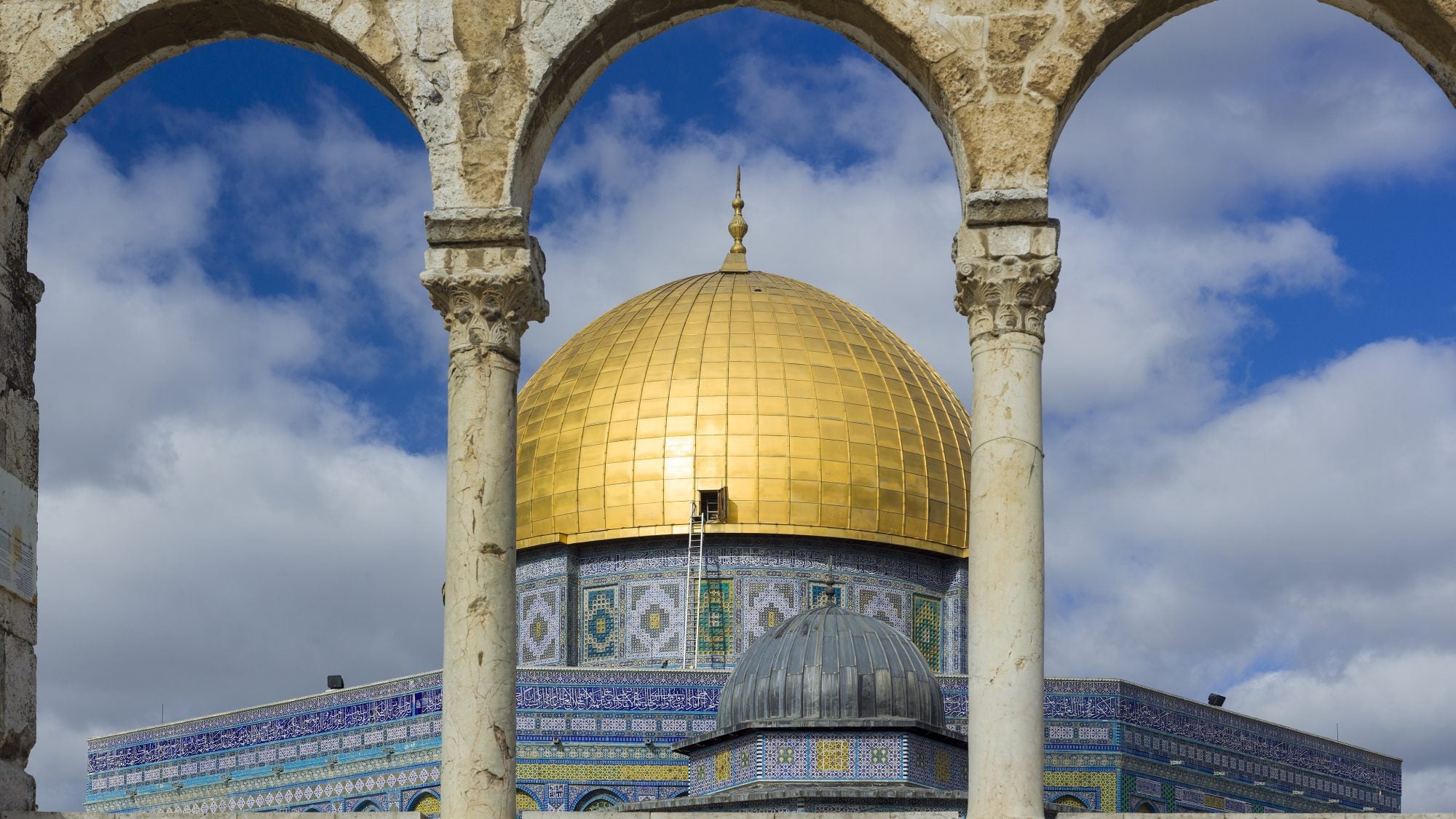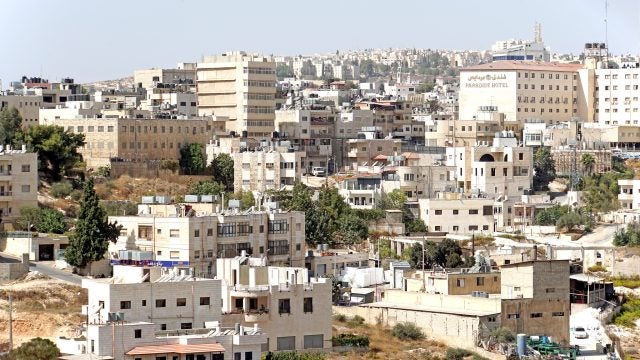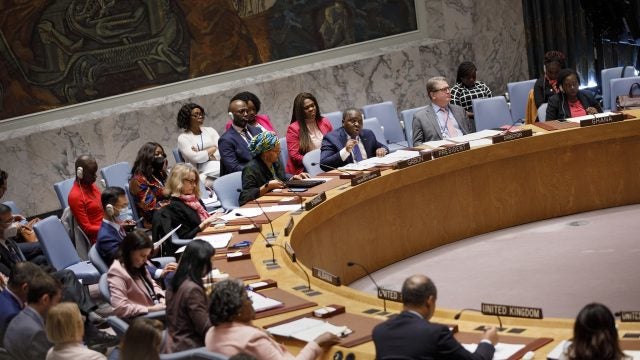
Title: Historicizing the Gaza War Through the Use of Collective Violence
In this article, I historicize the Gaza war from the joint vantage point of Israeli Jews and Palestinian Arabs through the perspective of collective violence. The Israeli Jewish and the Palestinian Arab communities confront their foundational violence at two historical moments: the Holocaust’s devastation of European Jews that commenced in 1941 and the traumatization and eventual minoritization of Palestinian Arabs on their ancestral lands with the 1948 establishment of the state of Israel. The perpetrator behind both these historical events of collective violence is the same: Western powers. Going forward, I recommend that Israeli Jews and Palestinian Arabs, not the West, have full agency in negotiating peace. Specifically, I advocate that local academics from Israeli and Palestinian universities recruit state (officers and officials) and civil society (various community leaders) representatives to serve on a peace committee that would meet in Israel or Palestine. Only through such a joint, localized peace process can the conflict be effectively resolved.
Introduction
On October 7, 2023, forty men belonging to the militant wing of Hamas, governing as the Palestinian Authority in the Gaza Strip, executed a terrorist attack in Israel. This attack from Hamas was countered by immediate violence, as the Israeli government invaded Gaza with the intent to rescue hostages and bring the Hamas perpetrators to justice.
On October 8, 2023, the United States intervened in this violence in support of Israel. It sent the Ford aircraft carrier strike group, accompanied by cruisers and destroyers, to the eastern Mediterranean Sea near the Israeli coast. This US military intervention effectively prevented any other country, including neighboring states with dominant Muslim populations like Lebanon, Egypt, Qatar, Iran, Turkey, and Saudi Arabia, from coming to the military aid of the Palestinians because if they did so, they would also have to take on the might of US military power.
While the Gaza war originated from local conflicts, the conflict quickly internationalized due to the strategic sensitivities and complexities of the region. The US intervention shifted the boundaries of the conflict from the local forces of the Israeli state and the Palestinian Authority to the global arena, as almost every country took a political stand in relation to the collective suffering of these two people. Recent US intervention serves as a microcosm of Western intervention in Israel and Gaza since the 1940s. Recognizing that the trauma caused to European Jews and Arab Palestinians since 1940 can be attributed to Western powers, the United States and other Western nations should avoid attempting to resolve the conflict in Israel and Gaza.
Responses to the Gaza War
As collective interpretations of violence in the form of protest marches began, Ireland (in the Global North) and South Africa (in the Global South) intervened–not militarily like the United States–but rather to argue that the Israeli state’s violent retaliation to Hamas’ invasion was genocide. After all, the Israeli Defense Force invaded Gaza, bombed neighborhoods, and killed tens of thousands of civilians, including unprotected Palestinian women, children, and elderly. The Israeli state has rejected all calls for a ceasefire, claiming it will keep fighting until all hostages are recovered. They still have not fully withdrawn with countries like Qatar and Egypt trying to negotiate some hostage exchanges. Most recently, the three European states of Ireland, Norway, and Spain formally recognized Palestinian statehood in an attempt to revive two-state solution negotiations.
Even though many countries supported Israel right after the Hamas attack, that support has since then dwindled now to the United States alone. Still, in the United States, civil society is polarized surrounding the Gaza war. A recent survey reveals divides not only between Democrats and Republicans but also between younger and older adults and between American Jews and American Arabs. Eventually, reactions to the Gaza war devolved into accusations of Zionism and antisemitism, even though most Americans stated they wanted democracy in Israel over its Jewish identity, were against antisemitism nationally and globally, and did not support Zionism because it is an Israeli issue and not an American one. On college campuses, administrators have recently put in place increasingly restrictive policies for the upcoming academic year to contain pro-Palestinian and anti-war demonstrations that swelled during and after the end of the last academic year.
These responses to the Gaza war reveal a pervasive binarism between ‘Jews’ and ‘Palestinians,’ although the words have different boundaries. In reality, Jews refer to a religious community and Palestinians to an ethnic one. ‘Israeli Jew’ and ‘Palestinian Arab’ capture the identities of these two groups more fully. The polarizing parameters of Western European modernity have created an ‘abyss’ between these identities within not only Western Europe but also the non-Western context. Western European modernity assumes that the social reality created by its metropoles ‘naturally’ extends to explain all knowledge–even in the entire non-Western world. Allowing Western metropoles to ‘solve’ conflicts comes at the expense of the rest of the world. Western European actors fail to build peace between Israeli Jews and Palestinian Arabs because it assumes that solutions must be generated by either one side or the other with each group favoring itself at the expense of the other.
An alternate critical approach that does not assume a bifurcated but rather a single integrated social reality is needed. To achieve common ground, both sides need to be included in jointly deciding the best course to take. As negotiations occur, all other countries, especially the West, should not be involved. The West should only support the decision that Israeli Jews and Arab Palestinians jointly take. Tracing the origins of the Israeli state in Palestine would provide a better understanding of the patterns of collective violence that underpin the conflict, reframing the current binarism toward the conflict.
Historical Origins of the Gaza War and the Concept of Foundational Violence
Two significant historical events construct the foundational violence of both communities. While the 1948 establishment of the State of Israel was foundational violence against Palestinian Arabs, the earlier 1941 onset of the Holocaust in Europe was foundational violence against European Jews. The instigators of these incidents of collective violence were the same, namely the Western powers of Germany, Britain, France, and the United States.
For the Palestinian Arabs, the creation of the Israeli nation-state on British colonial lands minoritized Palestinian Arabs on their ancestral lands. This foundational violence experienced by Palestinians at this historical juncture and thereafter has shaped their global image as the suffering victims of a stateless nation. Western powers have played a crucial role in not only helping to establish but also sustain this new state.
The brutal Nazi genocide of six and a half million Jews in Europe represents the foundational violence traumatically experienced by European Jews, likewise shaping their global image as the suffering victims of a stateless nation. Western powers were the perpetrators in the process. After the defeat of Germany, Western powers of Britain, France, and the United States legitimated the forced removal of Jews from the European continent to the Middle East.
Ultimately then, the historical origins of the contemporary Gaza war point to a chain of collective violence, first perpetrated by Western powers against European Jews and later perpetrated by the Israeli Jews (backed by the West) against Palestinian Arabs. I think Western rhetoric silences this history twice: first by celebrating the establishment of the state of Israel as if the Jews had full agency in singlehandedly carving a homeland, and second by not acknowledging that these were the ancestral lands of the Palestinians.
A reformed analytical framework should conjoin the Jewish and Palestinian experiences of collective violence instead of privileging the suffering of one over the other. This develops a common narrative in the process, which could provide a common ground upon which to build their reconciliation. It also identifies Western powers as the original perpetrators of collective violence against the Jews and Palestinians. The British and the French minoritizing the Jews in Europe, the British colonizing Palestine after World War I, and the Germans destroying the Jewish minority in Europe all led to the establishment of the Israeli nation-state in the Middle East as the Jewish homeland. Given this foundational violence that the West meted out, the West can atone by not backing one side or the other and instead provide ‘neutral’ support of what the Israeli Jew and Palestinian Arab jointly agree.
Policy Recommendation
Israeli Jewish and Arab Palestinian academics should play a key role in the negotiation process. Most previous negotiation efforts have been state-centric, where officials and officers promote existing official state policy to no avail because of its disconnection from the populace and their civil society organizations. Yet the ideas, actions, and interactions in Israeli Jewish and Palestinian Arab communities occur simultaneously in both official and non-official spaces. Positive change is only possible when these two spaces interact.
A committee of academics from Israeli and Palestinian universities should jointly nominate Israeli Jewish and Palestinian Arab state and civil society representatives to negotiate a solution for Israeli Palestinian governance not only in Gaza but throughout all Israeli and Palestinian territories. The committee selection process must consider the age, race, gender, and affiliation of the participants, ensuring that Arab Christians and Mizrahi Jews are represented, for instance. The negotiations should take place in Israel or Palestine instead of the usual Western European destinations. A potential neutral meeting place could be the Bahai Compound in Haifa since Bahais profess to be equidistant from all religions and political views with the intent to promote peace.
In summary, Israeli Jews and Palestinian Arabs should be the main social actors engaged in achieving a possible reconciliation, eliminating the hegemony of the West over this process. Accordingly, Israeli and Palestinian academics must form a joint committee comprised of Israeli Jewish and Palestinian Arab state and civil society representatives to tackle this challenge within their common ancestral lands to reach long-lasting peace.
…
Born and raised in Istanbul, Turkey, Fatma Müge Göçek is currently a Professor of Sociology at the University of Michigan, Ann Arbor. Her research focuses on the comparative analysis of history, politics, gender, and collective violence in the Middle East and now in North America from a critical, DuBoisian perspective.
Image Credit: Andrew Shiva / Wikipedia
Recommended Articles

This article explores how the Palestinian crisis and the death of the two-state solution endangers the Hashemite Kingdom of Jordan. It illuminates the complicated relationship between Jordan, Israel, and Palestine…

This article explores the uncertain future of Arctic governance amid shifting global geopolitics. It argues that whether Washington and Moscow opt for confrontation or cooperation, multilateralism in the Arctic…

Twenty-five years ago, the United Nations Security Council adopted Resolution 1325, establishing a framework that underpins the Women, Peace, and Security (WPS) Agenda. The Resolution recognized both the…